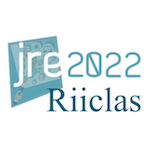
Conference themesCall for papers:Didactic contextualisations, theoretical and practical approachesMultiple approaches have been introduced to describe, model and analyse the interactions between the environment surrounding a learning, teaching or mediation situation and the situation itself. In these various approaches, the word “context”, in the singular or plural, takes on many meanings according to the theoretical frameworks adopted and the disciplinary or professional domains concerned. The place of the context in the situations studied – peripheral or central – is also discussed. Therefore, the papers presented at this event may question the concept of context(s) or focus on at least one of the thematic axes presented below. However, all contributions relating to contextual approaches to learning, education and mediation are welcome.
Axis 1: Context effects in disciplinary teaching and learning situations The concept of context effects now appears to be widely accepted to allow applications in the design of teaching approaches, didactic interactions and learning processes. While teaching processes based on context effects have been tested at various levels, many variations remain to be studied, particularly on the acquisition of professional techniques and technical or linguistic skills. In particular, we invite proposals on context effects in formal and informal learning situations. These may present research on the description and modelling of context effects and their relationship with learning.
Axis 2: Learning processes and interculturality examined through linguistic, social, anthropological and psycho-pedagogical dimensions Through the different modalities of interactive learning between learners from different contexts, complex phenomena relating to intercultural dimensions are frequently observed. Contributions exploring these dimensions are invited and they may focus on the links between learning and interculturality: How is it possible to base learning processes on intercultural situations and manage interculturality during didactic interactions? How can collaborations be created between pupils of different cultures? How can we understand one’s own culture, diversity and alterity through the discovery of others’?
Axis 3: Inequalities and variabilities in access to knowledge, education and mediation in overseas locations The expected contributions in this area may focus on the description and understanding of particularities observed in the access to knowledge in overseas locations. Within this area contributions can focus on studies on communication issues, priority education, resuming school education after dropping out, inclusive schooling, and the integration of migrant populations (French as a language of integration or schooling), for example.
Axis 4: Relationships between digital educational tools and contexts The contributions expected in this area could focus on the relationships between digital educational tools and contexts, in particular through each of the previous axes. They could address the modelling of context effects, the development of context effect calculators, or the development of context-sensitive digital scripting tools. Contributions may also present hybrid or fully remote teaching devices with the participation of learners from different contexts. Questions of the relationship between educational technologies and digital inequalities and interculturality, or digital-related inequalities in the access to knowledge will also be welcomed.
Further themes: Engagement in research: research in Master of Teaching, Education and Training (MEEF) programmes Varia |


